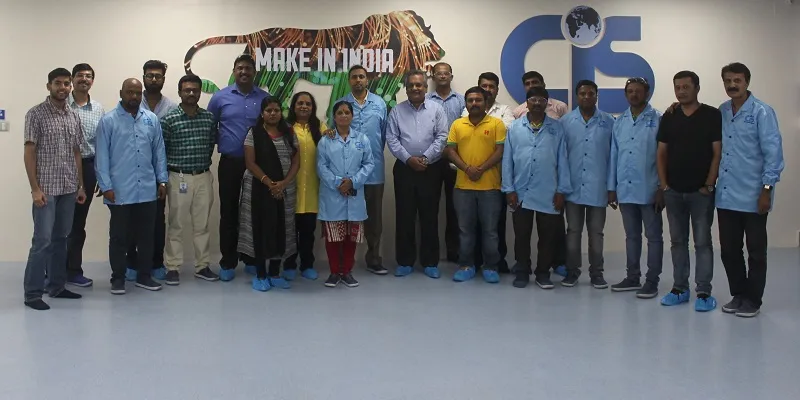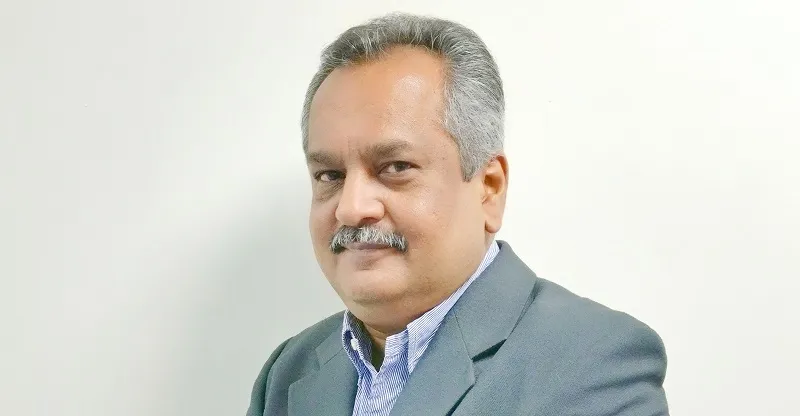With new-wave fibre optic solutions, Citadel Intelligent Systems is a Make-in-India story from Bengaluru
Citadel Intelligent Systems delivers customer-centric fibre optic interconnectivity solutions for enterprise and telecom networks, smart cities, security and surveillance systems, and harsh environments.
Manufacturing brings to mind large companies, but Citadel Intelligent Systems, tucked away in a plush little manufacturing facility, turns this idea on its head. The Bengaluru-based company makes fibre optic cable and offers solutions for businesses in industries such as telecom networks, smart cities, security and surveillance systems, and harsh environments.
Citadel Intelligent Systems was founded by KK Shetty, now CEO and Managing Director, in 2016. The startup is co-promoted by HG Chandrashekar and Paul Krieckaert, who have angel funded the business.
K K Shetty says: “Thanks to GST, we have been able to achieve economies of scale and can transport fibre optic cable to clients across the country. I would not have been able to do this as a startup a few years ago because I would not have been able to scale up with so many taxes.”

Fibre optic - slightly thicker than human hair and made out of drawing glass - is the highway of information. All data and information passes through these cables in the form of waves. Even these words are being transmitted through fibre optic cable to reach millions of readers.
This is a very complex set of fibres, unlike electric wires and cables, and can break easily. It’s vital to cleave them carefully, and ensure they are bound together and protected by a jacket. But their ability to carry information and transmit data is much more efficient than microwave transmitting towers.
For KK Shetty, the growth of Reliance Jio, and other large telcos betting on the business of data meant that building a fibre optic network was a step in the right direction. He had spent 25 years at a global MNC understanding how to build and market a division; his division, called the network enterprise group, and was sold to Comscope for several billion dollars in 2013.
“After so many years in the corporate world and with this government’s promise of getting the tax structures right, I set up Citadel systems,” he says.
The early days
When KK Shetty quit his corporate job in 2016, he realised that big-time expansion of hyper-scale data centres was happening across the world. Hyper-scale data centres are those that are used in heavy data environments like NASA and big banks. Even Facebook and Google use these hyper-scale data centres.
A hyper-scale data centre allows you to scale as and when the demand goes beyond the usual servers that a corporate provisions for. Amazon Web Services is pushing this in various banks and other industrial applications.
For Shetty, the timing was just right as India was aligning with global digital trends. There was also a proliferation of devices across industries.
According to Markets and Markets, the size of the fibre optic industry is $5 billion. HFCL, which has a couple of plants in South India, and Aksh are some of the larger producers of fibre optic cable.
Gartner, Inc. forecasts that 8.4 billion connected things will be in use worldwide in 2017, up 31 percent from 2016, and will reach 20.4 billion by 2020. Total spending on endpoints and services will reach almost $2 trillion in 2017.
Regionally, Greater China, North America and Western Europe are driving the use of connected things and the three regions together will represent 67 percent of the overall Internet of Things (IoT) installed base in 2017.
The consumer segment is the largest user of connected things with 5.2 billion units in 2017, which represents 63 percent of the overall number of applications in use. Businesses are on pace to employ 3.1 billion connected things in 2017.
Peter Middleton, Research Director at Gartner, says: “Aside from automotive systems, the applications that will be most in use by consumers will be smart TVs and digital set-top boxes; smart electric meters and commercial security cameras will be most used by businesses.”

Getting started
Shetty says, “All I had to do was convince my two other colleagues and industry experts to put in money.”
Citadel was able to raise $1.2 million dollars from Chandrashekar and Paul. With that money, Shetty was able to set up a plant and employ over 50 people, most of them industrial scientists.
In 2017, his team won a global contract to supply a complex bypass cable for a submarine. Shetty does not want to divulge details because the project is under a non-disclosure agreement. He has close to 10 manufacturing lines, but based on current orders Citadel manufactures in only two lines.
“Our cables can also go in ruggedised environments and can serve any civilian or military applications,” he says.
Shetty has a dedicated team for ruggedised hardware; in their labs, they check how information flow stays 100 percent even in harsh conditions.
In the future
Citadel Intelligent Systems has an order book of $15 million and will close financial year 2018 with revenue of more than a million.
Chetan Maini, Founder of Sun Mobility, says: “Manufacturing is the way forward. It provides jobs and growth, and we need high skills for modern-day manufacturing,”
This is exactly what KK Shetty and his team have in mind. They have also signed a tie-up with global fibre optic giant AFL where Citadel will produce fibre optic cable for data çentres and other industries. Citadel systems will also be pushing for contracts for smart cities.
The company needs to ramp up rapidly as global giants like Oclaro, Ciena, and Acacia are already looking at global expansion in a big way, and India is a big part of everyone’s strategy.
But KK Shetty is ready for the challenge. Citadel is preparing to become a Rs 100 crore company by 2020 and Shetty is making all the right moves to get there.







